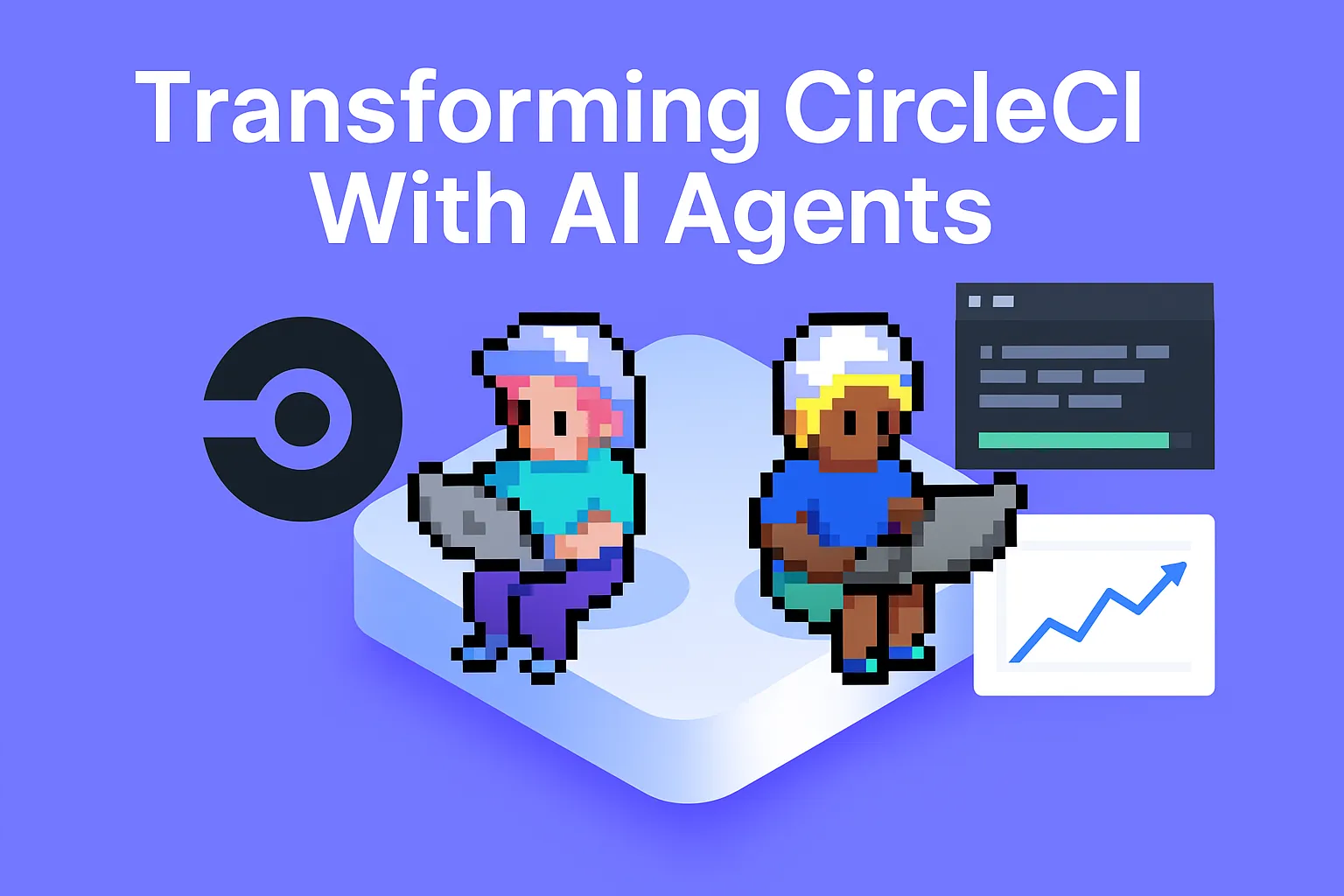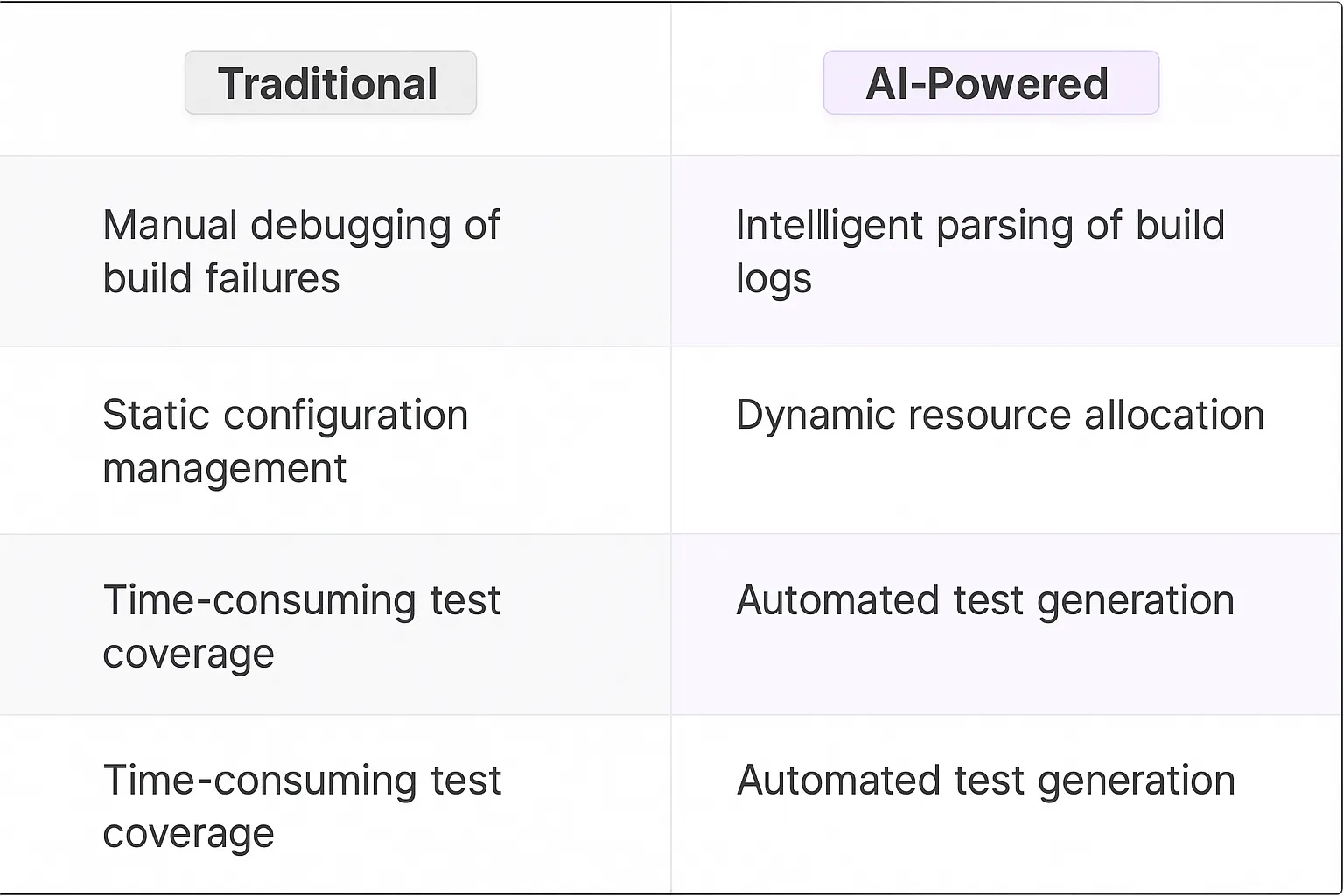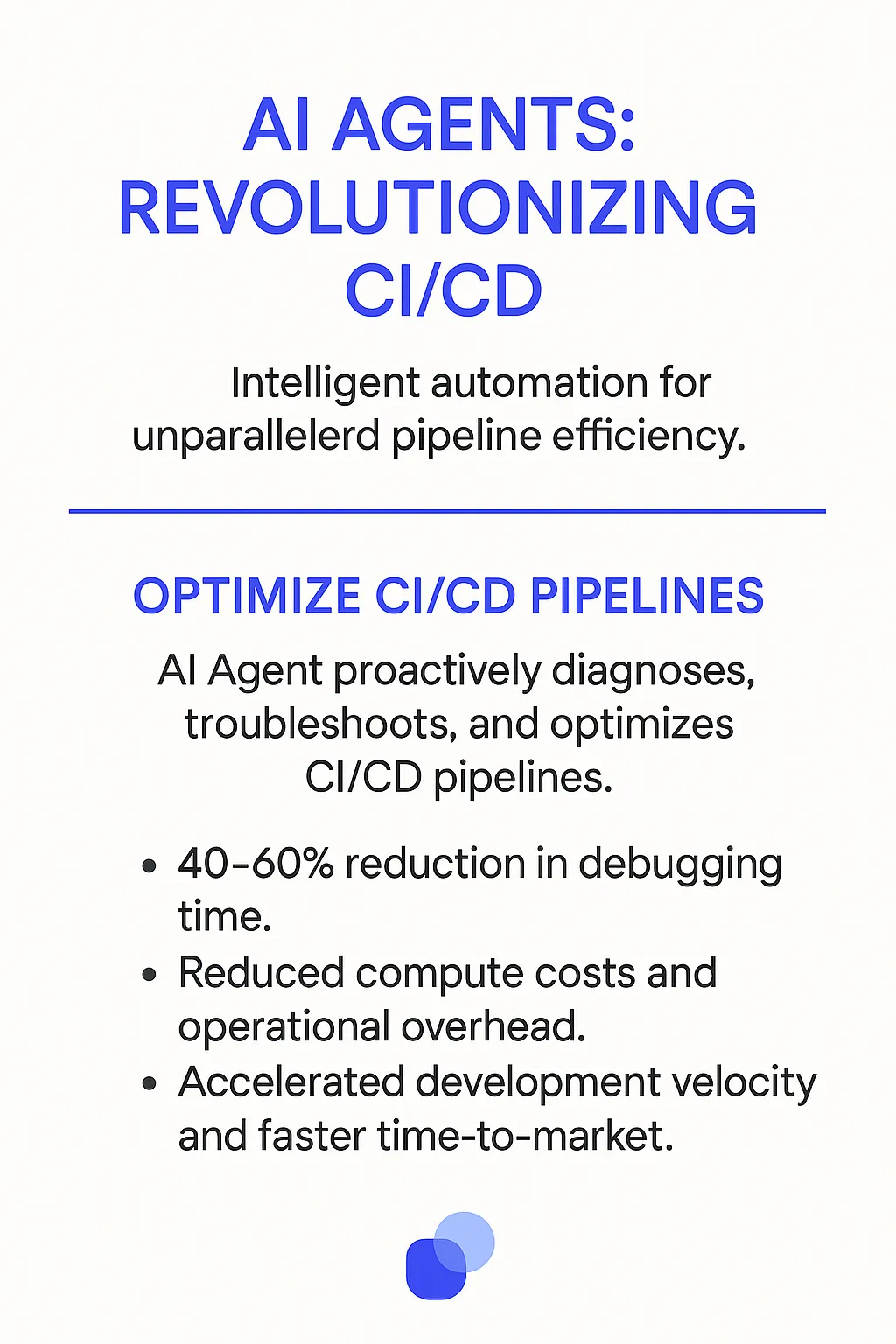CircleCI
Understanding CircleCI's Core Platform and Features
CircleCI stands as a leading continuous integration and delivery platform that automates the build, test, and deployment process for modern applications. The platform enables development teams to detect and fix issues early in the development cycle while ensuring consistent and reliable software delivery. Its cloud-native architecture supports diverse programming languages and frameworks, making it a versatile choice for organizations of all sizes.
The platform excels with parallel test execution capabilities, allowing teams to split large test suites across multiple machines. Its docker support enables consistent testing environments, while orbs provide reusable configuration packages. CircleCI's workflow orchestration allows complex pipeline definitions with sophisticated dependency management. The platform's resource class system lets teams optimize performance by selecting appropriate compute resources for specific jobs.

Benefits of AI Agents for CircleCI
What would have been used before AI Agents?
CircleCI users traditionally relied on static documentation, StackOverflow threads, and DevOps team members to troubleshoot pipeline issues and optimize configurations. Engineers spent countless hours manually parsing through build logs, consulting documentation, and experimenting with different config.yml settings through trial and error. This created bottlenecks, especially for teams working across time zones or during critical deployment windows.
What are the benefits of AI Agents?
AI Agents transform how development teams interact with CircleCI by providing contextual, real-time support for common CI/CD challenges. When build failures occur, AI Agents analyze logs and configuration files to pinpoint root causes - whether it's a dependency conflict, resource constraint, or syntax error.
The network effects are particularly powerful here. As more teams use AI Agents with CircleCI, the knowledge base expands exponentially. The Agents learn from successful pipeline configurations across thousands of projects, developing pattern recognition that helps teams implement best practices specific to their tech stack and use case.
For growing engineering organizations, AI Agents act as force multipliers. Junior developers can quickly understand and fix pipeline issues that previously required senior DevOps expertise. Teams can maintain velocity during high-growth periods without proportionally scaling DevOps headcount.
The most compelling benefit is the shift from reactive to proactive optimization. AI Agents don't just fix problems - they identify opportunities to improve build performance, reduce costs, and enhance security based on analyzing historical data and emerging patterns. This creates a continuous improvement loop that would be impossible to achieve through human effort alone.
The end result is dramatically reduced mean time to resolution for pipeline issues, more consistent deployment success rates, and engineering teams that can focus on building features rather than wrestling with CI/CD configuration.

Potential Use Cases of AI Agents with CircleCI
Processes
- Continuous monitoring of build pipelines to detect and diagnose failures before they impact development velocity
- Automated analysis of test coverage gaps by examining code changes and existing test suites
- Dynamic resource allocation optimization based on historical build patterns and team workflows
- Proactive identification of bottlenecks in CI/CD pipelines through pattern recognition
- Real-time configuration suggestions to improve build speed and efficiency
Tasks
- Intelligent parsing of build logs to surface actionable error messages and suggested fixes
- Automated creation and maintenance of CircleCI configuration files based on project requirements
- Smart caching strategies that adapt to changing build patterns and dependencies
- Contextual analysis of failed builds with specific debugging recommendations
- Automated generation of test cases based on code changes and coverage requirements
- Dynamic adjustment of parallel test execution based on historical test run times
- Predictive maintenance alerts for potential pipeline issues before they occur
Integration Benefits
CircleCI AI agents transform traditional CI/CD workflows by bringing intelligence to build processes. These digital teammates analyze vast amounts of build data, identifying patterns that human developers might miss. They excel at spotting subtle correlations between code changes and build failures, reducing debugging time from hours to minutes.
The real power emerges when AI agents handle the cognitive load of pipeline optimization. They continuously learn from successful and failed builds, creating a knowledge base that grows more valuable over time. This means teams can focus on writing code while their AI counterpart manages the intricacies of build processes.
Performance Impact
Development teams implementing AI agents in CircleCI environments typically see a 40-60% reduction in time spent debugging build failures. The impact compounds when scaled across large engineering organizations, where AI agents can simultaneously monitor hundreds of pipelines.
The most significant gains come from the AI's ability to learn team-specific patterns. It adapts to your codebase's unique characteristics, becoming increasingly accurate at predicting potential issues and suggesting optimizations that make sense for your specific use case.
Implementation Strategy
Success with CircleCI AI agents requires thoughtful integration into existing workflows. Start with high-impact, low-risk areas like build log analysis and test optimization. As the AI accumulates knowledge about your specific patterns, gradually expand its responsibilities to more complex tasks like configuration management and resource optimization.
The key is treating the AI agent as a specialized team member that excels at pattern recognition and repetitive analysis. This approach leads to organic adoption and measurable improvements in development velocity.

Industry Use Cases
AI agents within CircleCI transform how development teams operate across multiple sectors. The integration capabilities extend far beyond basic CI/CD automation, creating meaningful impact in ways that weren't possible just a few years ago. From fintech startups to enterprise software companies, organizations are discovering unique applications that match their specific development needs.
The real power comes from how these digital teammates adapt to different development environments and team structures. They're not just executing predefined tasks - they're actively participating in the development lifecycle, learning from each deployment, and helping teams ship better code faster. This creates a compound effect where each successful implementation builds on previous learnings, leading to increasingly sophisticated and efficient development processes.
Looking at specific industry applications reveals how AI agents in CircleCI are reshaping development practices across different business contexts. The versatility of these tools enables teams to customize their approach based on their unique requirements, whether they're building consumer apps, enterprise software, or complex infrastructure systems.
Gaming Industry: Accelerating Development with CircleCI AI Agents
Game development studios face intense pressure to ship updates, fix bugs, and maintain player engagement in a hyper-competitive market. CircleCI AI Agents transform how gaming companies handle their CI/CD pipelines, particularly for massive multiplayer online games (MMOs) that require frequent updates and patches.
Take a mid-sized game studio working on an MMO with millions of daily active users. Their development team typically spends 30-40% of their time managing build processes, debugging failed tests, and coordinating deployments across different environments. CircleCI AI Agents analyze historical build data and testing patterns to automatically identify potential issues before they impact production.
When a developer pushes new character animation code, the AI Agent proactively flags memory optimization issues based on previous build patterns. It automatically suggests specific optimizations that have worked in similar scenarios, cutting debug time by 60-70%. For game-breaking bugs requiring immediate fixes, the AI Agent prioritizes critical builds and automatically adjusts test sequences to focus on affected game components.
The network effects become more powerful as the AI Agent learns from each build. It develops an understanding of which test combinations are most likely to catch issues for specific types of game updates - whether they're related to player mechanics, in-game economies, or multiplayer networking code.
Most importantly, this allows game developers to maintain their creative flow while shipping more stable updates. Instead of context-switching to debug build failures, they can focus on crafting engaging player experiences. The result: faster development cycles, more stable game builds, and happier players who experience fewer bugs and crashes.
E-commerce: Building Resilient Systems with CircleCI AI Agents
E-commerce platforms live or die by their ability to handle massive traffic spikes, process transactions flawlessly, and maintain rock-solid uptime during peak shopping seasons. The complexity of modern e-commerce architectures means development teams often struggle with maintaining velocity while ensuring system stability.
A typical enterprise e-commerce platform processes thousands of builds weekly across microservices handling everything from inventory management to payment processing. CircleCI AI Agents transform this landscape by applying deep learning to historical build data, creating predictive models that anticipate potential failure points before they impact production systems.
The AI Agent's pattern recognition capabilities shine during high-stakes deployments. When an e-commerce team pushes updates to their checkout flow, the Agent analyzes past deployment patterns and automatically identifies risky code changes that previously caused payment processing issues. It then adjusts test coverage and suggests specific integration tests based on the risk profile.
For inventory management systems, the AI Agent learns to correlate specific code changes with database performance impacts. It automatically flags changes that might affect query optimization and suggests proven solutions from previous successful builds. This pattern matching becomes increasingly sophisticated over time, reducing production incidents by up to 80%.
The real power emerges during peak shopping seasons like Black Friday. The AI Agent automatically adjusts build priorities and test sequences based on historical traffic patterns and system load. It identifies which components need enhanced testing coverage during high-load periods and automatically scales testing resources to maintain deployment velocity without compromising stability.
Development teams using these AI Agents report spending 70% less time debugging failed builds and can push critical updates with greater confidence. The result is more resilient e-commerce systems that can handle traffic spikes while maintaining rapid development cycles - crucial for staying competitive in online retail.
Considerations and Challenges
Implementing AI agents within CircleCI environments requires careful planning and strategic consideration of both technical infrastructure and team dynamics. The integration process presents several key challenges that development teams must address.
Technical Challenges
API rate limiting poses a significant bottleneck when scaling AI agent operations across multiple CI/CD pipelines. Teams often hit these limits during peak deployment periods, requiring sophisticated request queuing and throttling mechanisms.
Version control integration demands careful orchestration between the AI agent's decision-making processes and existing git workflows. Merge conflicts and automated code changes need robust conflict resolution protocols to prevent pipeline disruptions.
Security boundaries require precise configuration, as AI agents need specific permissions to interact with build processes while maintaining strict access controls. Teams must implement granular permission schemas that balance functionality with security best practices.
Operational Challenges
Cost management becomes complex as AI agent usage scales. Each interaction consumes computational resources and API calls, requiring teams to implement usage monitoring and optimization strategies. Organizations need clear metrics to measure ROI against traditional CI/CD processes.
Team adoption often faces resistance from developers who prefer manual control over automated processes. Creating clear escalation paths and override mechanisms helps build trust in the AI agent's capabilities while maintaining human oversight.
Pipeline customization requires significant upfront investment to train AI agents on organization-specific workflows and requirements. Teams must document tribal knowledge and unique build processes to enable effective AI decision-making.
Maintenance overhead increases as AI agents need regular updates to handle new build patterns and edge cases. Organizations must allocate resources for continuous improvement and optimization of agent behaviors.
AI-Powered Evolution in Development Operations
The integration of AI Agents with CircleCI marks a fundamental shift in how development teams approach continuous integration and deployment. These digital teammates don't just automate existing processes - they create entirely new possibilities for optimization and efficiency. The compound effects of reduced debugging time, proactive optimization, and intelligent resource management deliver measurable improvements in development velocity and code quality.
As AI Agents continue learning from millions of builds across different organizations, their pattern recognition capabilities grow increasingly sophisticated. This network effect creates a powerful feedback loop where each successful implementation contributes to the collective knowledge base, benefiting the entire development ecosystem. For teams looking to scale their development operations while maintaining code quality, the combination of CircleCI and AI Agents represents a strategic advantage in modern software development.













